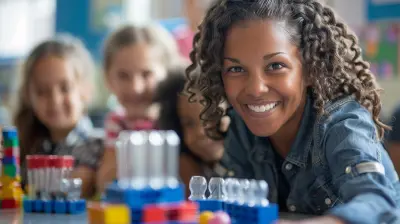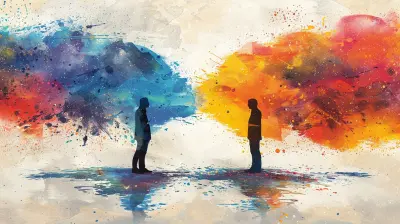The Impact of Social Media on Interpersonal Communication
12 June 2025
In the whisper of a notification, in the glow of a screen, we find ourselves more connected than ever — but are we really communicating?
Social media has changed the way we live, laugh, and love. It has danced into every moment of our lives, trailing likes, shares, and emojis in its wake. And while it’s easy to get caught in the whirlwind of filters and hashtags, there’s a deeper question quietly tapping us on the shoulder — what is social media doing to our relationships?
Let’s peel back the digital curtain and take a raw, rhythmic look at the impact of social media on interpersonal communication.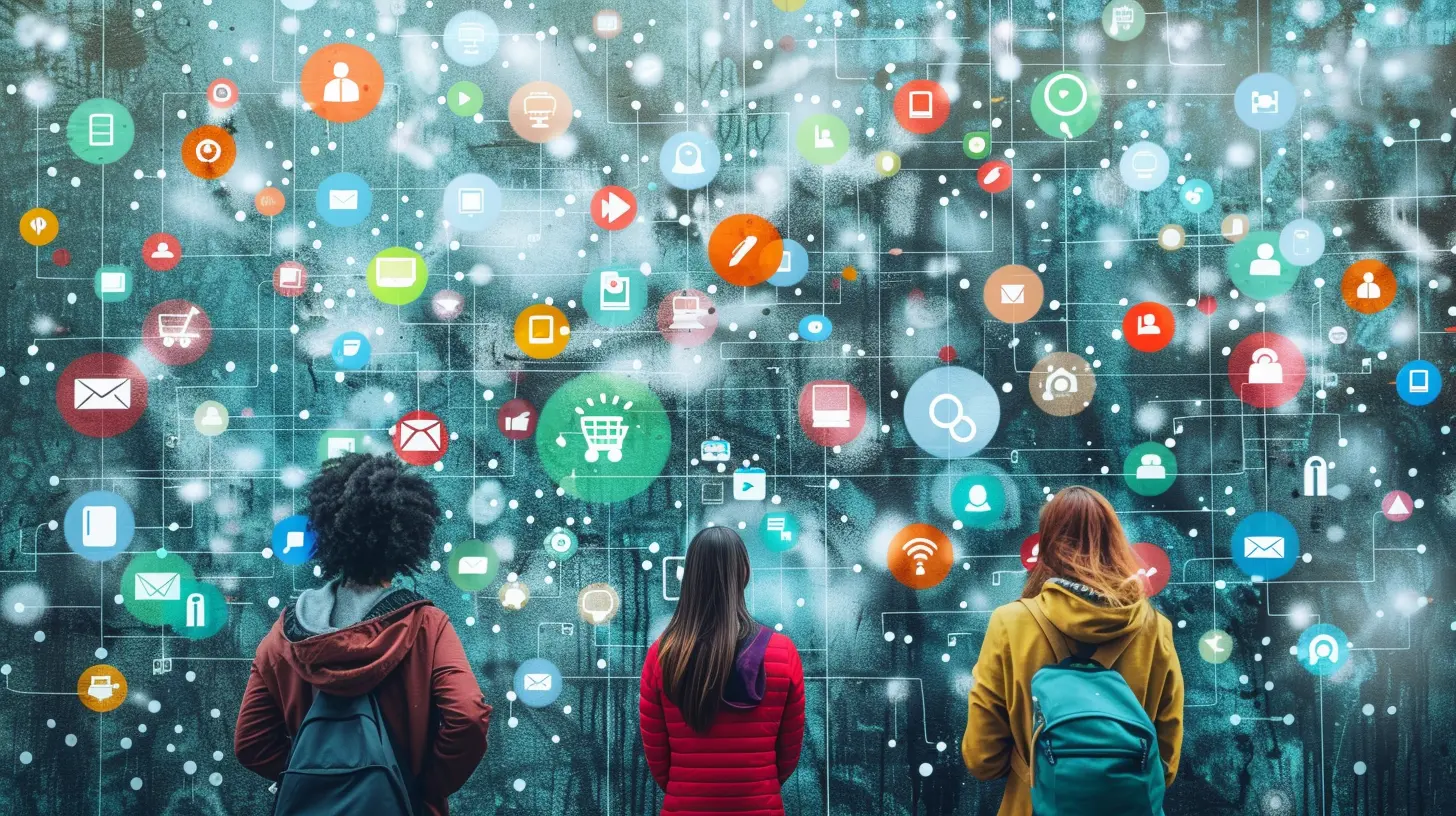
📱 Social Media: Our New Digital Playground
It wasn’t so long ago that birthdays were remembered through handwritten cards and conversations flowed over cups of coffee. Now, we’re tagging friends on selfies, typing “hbd 🎉” on timelines, and counting interactions like they’re currency.Social media platforms — Instagram, Facebook, TikTok, X (formerly Twitter), Snapchat — have transformed into modern town squares. But instead of voices echoing in the air, they flicker across screens.
So, what's the price for this convenience?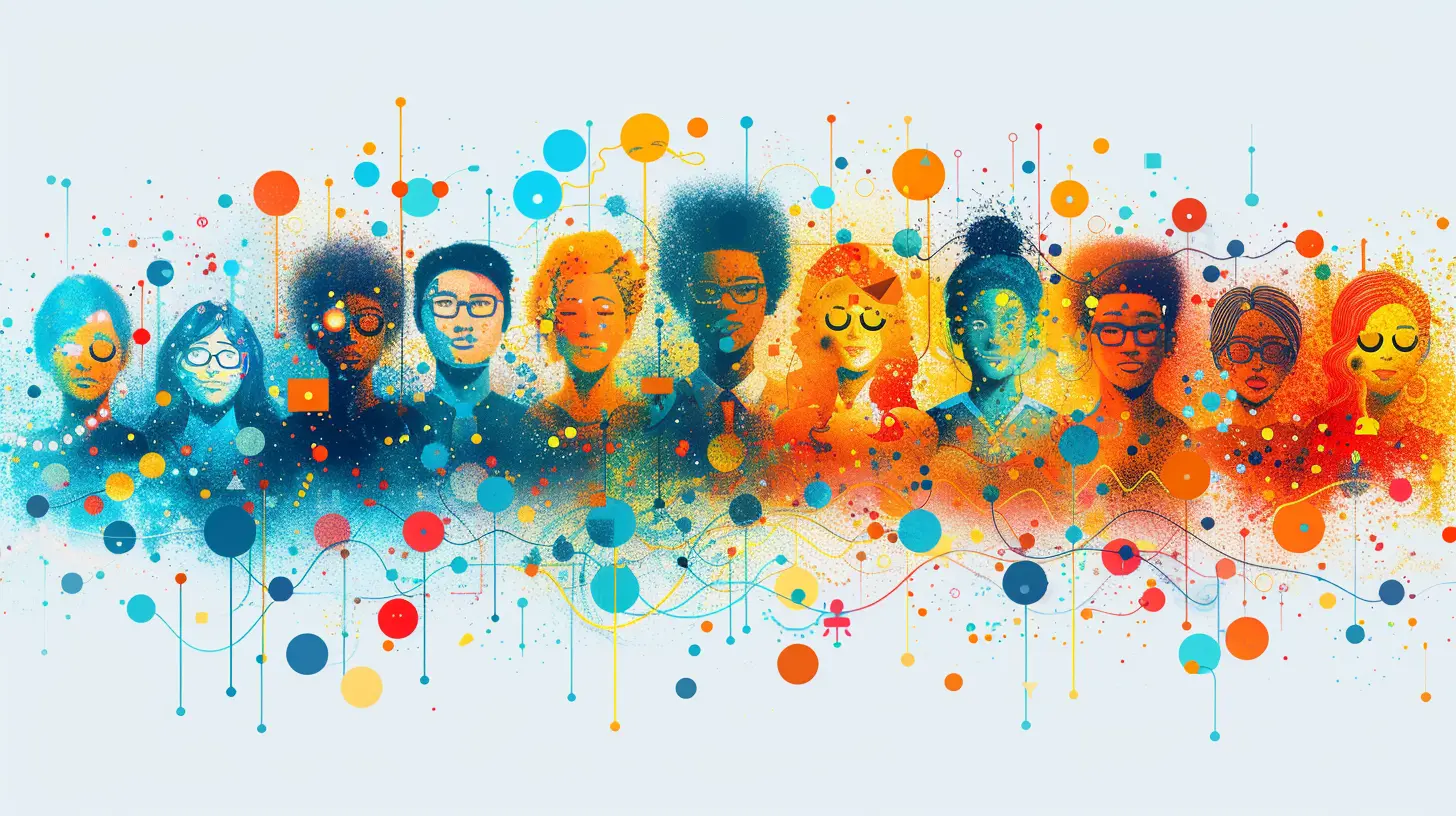
💬 The Shift from Face-to-Face to Screen-to-Screen
Let’s be real—how often do you talk to your friends face-to-face these days? For many of us, “talking” means reacting to a story or sending a meme. But those seconds of interaction, while fun, can erode the richness of human connection.Remember how it feels when someone looks you in the eye and truly listens? That emotional intimacy is hard to replicate through a screen, no matter how many flame emojis you toss into a chat.
The Rise of Superficial Conversations
With the rise of short-form content and disappearing messages, our attention spans are shrinking. Conversations have become bite-sized, often stripped of depth and nuance. While it’s cool to have 500+ friends online, how many of them would you call in a crisis?The Fear of Missing Out (FOMO)
Ah yes, FOMO. That itchy feeling when you see your friends hanging out without you, even if you had no plans to go in the first place. Social media floods us with curated highlight reels, making us believe that everyone is living their best life — all the time. This can lead to jealousy, anxiety, and a sense of social comparison that eats away at our self-worth.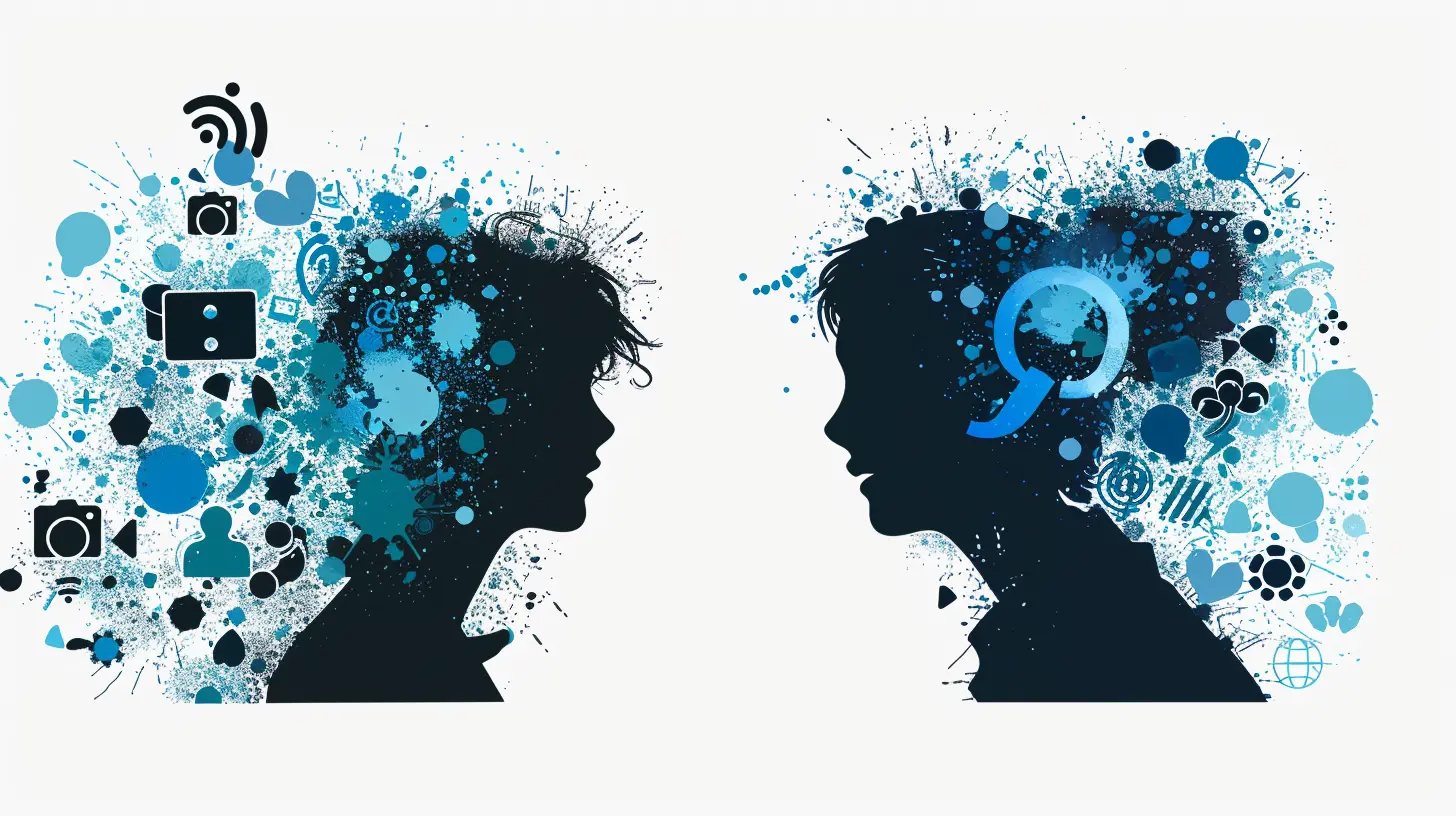
💔 The Breakdown of Real-World Relationships
Here’s the kicker: while social media claims to connect, it can also divide.We’re often more glued to our phones than the people sitting across from us. Dinner tables become photo studios. Dates turn into scrolling sessions. Conversations are interrupted by buzzes and pings.
Digital Overload, Emotional Underload
Think of communication like a plant. It needs water, sunlight, and attention to grow. But when most of our interactions are watered down into double taps and quick replies, that plant begins to wither. Emotional bonding takes a backseat, replaced by impulsive, transactional conversation.Ghosting, Breadcrumbing & the New Relationship Norms
Ever been ghosted? It's brutal. One minute, you’re texting every day; the next, radio silence. The casual nature of social media has made it easier for people to disappear without explanation.Then there's "breadcrumbing" — dropping flirty comments or messages just to keep someone interested, without any real intention. A cruel game powered by notifications.
This isn’t just changing our terminology. It’s changing the rules of engagement in our relationships.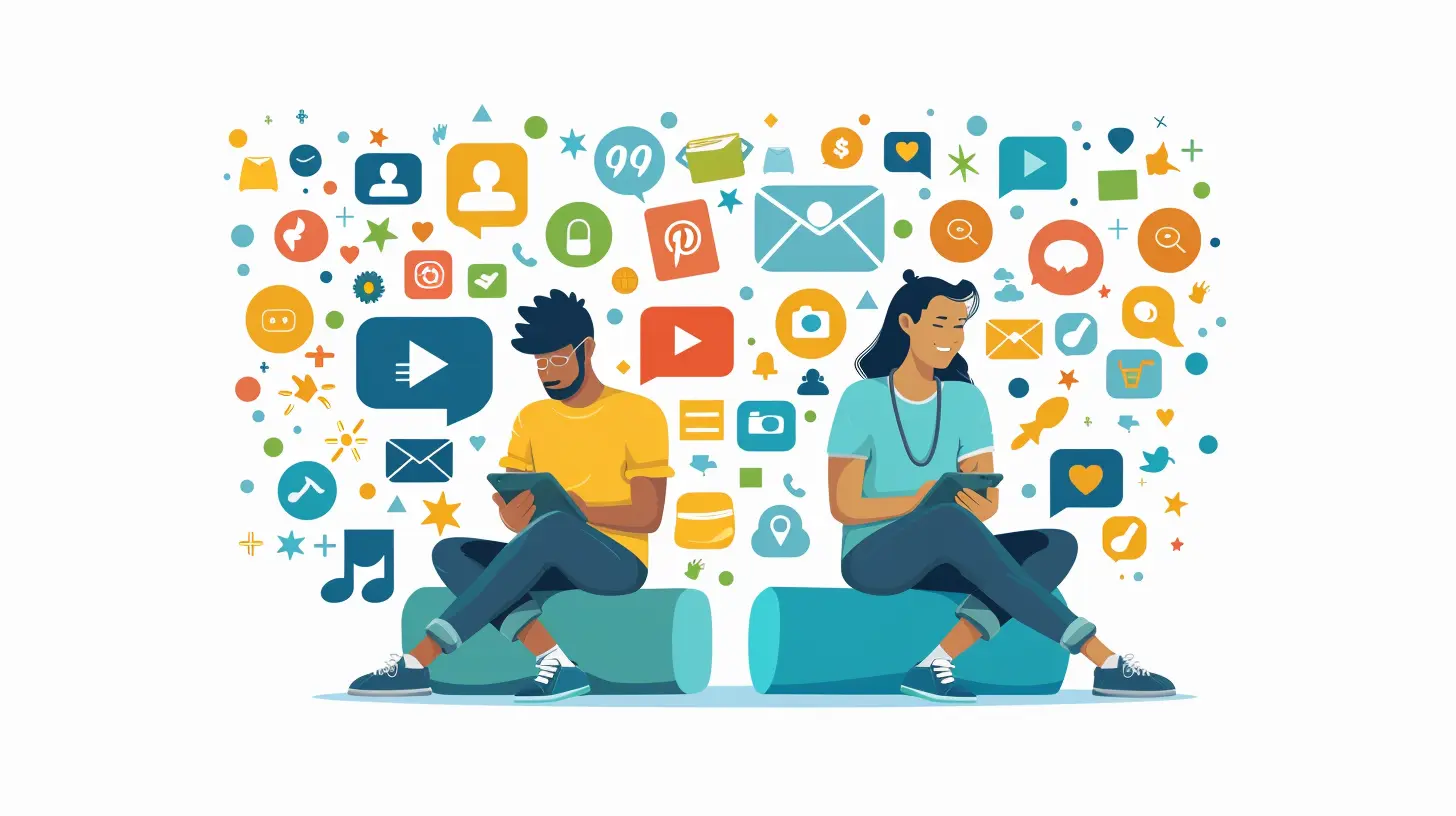
🎭 The Rise of Digital Personas
We all wear masks — on stage, at work, at family dinners. But social media has given us digital masks. Carefully curated, filtered, and fine-tuned versions of ourselves.Posting for Validation
How often do we post to express, and how often to impress? It’s become second nature to seek approval through hearts and comments. But when validation comes from the crowd, authenticity starts to fade.We become performers instead of communicators. Our “highlight reels” hide the behind-the-scenes realities of human experience — the messiness, the vulnerability, the real.
🧠 The Mental Toll: Anxiety, Loneliness & the Illusion of Connection
Here’s the paradox — we’re constantly connected, yet feeling lonelier than ever.Social media provides comfort, sure. It kills boredom, offers entertainment, and even makes us feel seen — but it’s often a pixelated version of companionship.
Anxiety from Constant Connectivity
Notifications never sleep. There’s a constant pressure to reply, react, and remain present online. This doesn’t just drain our batteries — it drains us.We begin “doom-scrolling,” consuming content mindlessly, comparing ourselves relentlessly. And comparison, well, as the old saying goes — it’s the thief of joy.
Loneliness in a Crowded Room
Ever felt alone even in a crowd? That’s what social media can do. We might be in ten group chats, but none that really know us.It’s not the number of connections that matters. It’s the quality. And unfortunately, the digital world often skimps on depth in favor of breadth.
💡 The Silver Linings: Social Media as a Tool for Connection
It’s not all doom and gloom. Let’s give credit where it’s due.Social media can be a beautiful bridge — a way to reconnect with old friends, maintain long-distance relationships, and find communities that share our interests and values.
Long-Distance Love & Friendship
For families split by oceans or friends who moved to new cities, staying in touch through video calls and DMs is nothing short of magical. It keeps relationships alive against the odds.Advocacy, Storytelling, and Empathy
Social media also opens our eyes to other people's stories. It promotes empathy by sharing experiences we may never encounter otherwise — from mental health awareness to social justice movements.When used with intention, social media becomes a stage not for vanity, but for vulnerability and voice.
🌱 Striking the Balance: Real Life vs Digital Life
So what’s the solution? Do we throw our phones in rivers and run to the hills? Not quite.Like any tool, social media isn’t good or bad — it’s about how we use it.
Tips for Healthier Digital Communication
- Be Present: When you're with someone, be with them. Put the phone down.- Set Boundaries: Limit screen time. Not every notification needs a response.
- Cultivate Depth: Choose quality over quantity in your conversations.
- Check Your Intentions: Post for expression, not validation.
- Practice Digital Detoxes: Take intentional breaks. Let your mind breathe.
Relearning the Art of Listening
Listening isn’t just waiting for your turn to talk. It's about understanding. And in a world of noise, true listening is a rare and beautiful skill.Sit with silence. Hear the unsaid. Make eye contact. That’s where real communication lives.
📝 Final Thoughts: Reconnecting Without Wi-Fi
Social media is like wind — it can carry your voice farther than ever before, but it can also scatter it into noise if you're not careful. It’s a tool for connection, yet it can build walls if misused.Real communication requires presence, empathy, and vulnerability — things that don’t always translate well into pixels. If we’re not careful, we risk trading emotional intimacy for digital convenience.
But the good news? It’s never too late to reconnect — for real. Maybe it starts with a phone call. Maybe it’s a coffee date. Or just looking someone in the eyes and saying, “Hey, how are you really?”
In the end, the heart beats louder than any notification. We just have to start listening again.
all images in this post were generated using AI tools
Category:
Communication SkillsAuthor:

Zoe McKay
Discussion
rate this article
3 comments
Kalani Roth
Social media enhances connections but can hinder face-to-face communication skills.
June 23, 2025 at 4:19 AM

Zoe McKay
Thank you for your comment! I agree that while social media facilitates connections, it can sometimes detract from our ability to engage in meaningful face-to-face interactions. Balancing both is key for healthy communication.
Seraphis McAuley
“Social media: where ‘LOL’ means laughing out loud and ‘BRB’ is an advanced strategy for avoiding awkward small talk. Who knew that posting a selfie could be more relatable than a face-to-face conversation? Modern romance, redefined!”
June 13, 2025 at 11:16 AM

Zoe McKay
Absolutely! Social media has transformed how we connect, often prioritizing digital interactions over in-person conversations, and reshaping our understanding of relationships.
Mallory McTigue
This article effectively highlights the dual nature of social media in shaping interpersonal communication. While it enhances connectivity and provides a platform for diverse voices, it also risks diminishing face-to-face interactions. Balancing online engagement with real-world relationships is crucial for meaningful communication.
June 12, 2025 at 3:48 AM

Zoe McKay
Thank you for your insightful comment! I agree that balancing online engagement with face-to-face interactions is essential for fostering meaningful communication.
